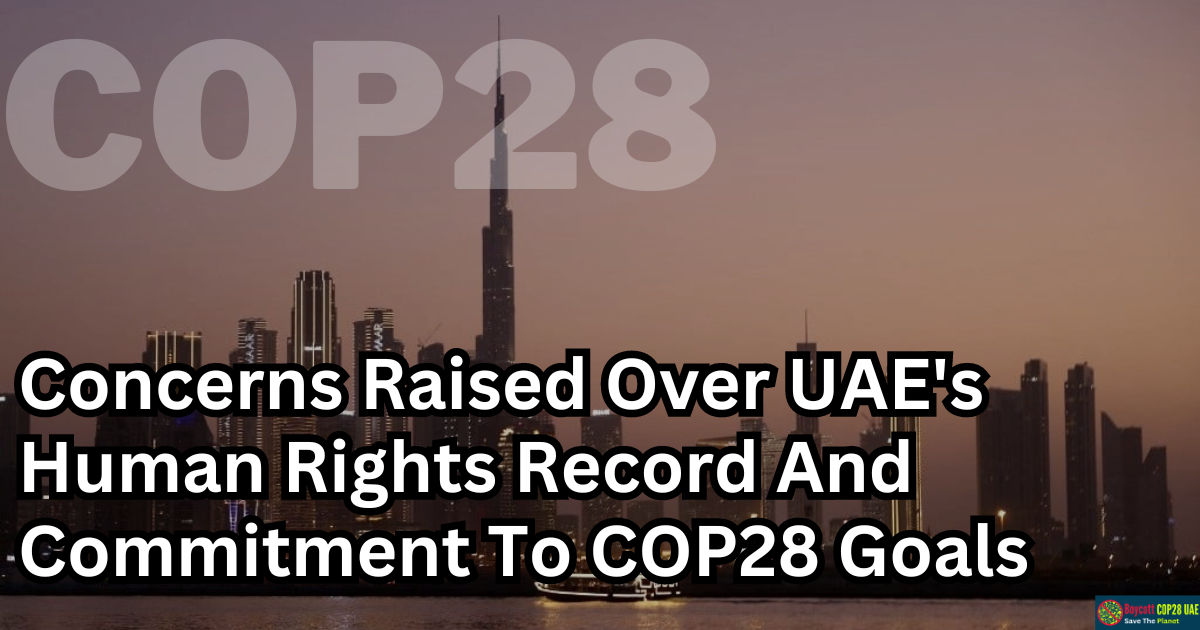In a critical stance against the United Arab Emirates (UAE) and its leadership, Human Rights Watch is calling upon participants of the 28th annual United Nations Climate Change Conference (COP28) to address the nation’s human rights violations and to demand a commitment to phase out fossil fuels. The COP28, set to commence, in Dubai, should be more than just a platform for climate discussions, according to the organization.
Richard Pearshouse, the Environment Director at Human Rights Watch, emphasized the need for decisive action at COP28. He stated, “This isn’t a climate conference for the faint-hearted. Governments from around the world need to turn up in the UAE prepared to deliver a clear message that ambitious climate action requires meaningful participation of independent voices, including those calling for the phaseout of fossil fuels.”
Amid the ongoing environmental crisis, the global emission of greenhouse gases from the burning of oil, coal, gas, and other different hazardous elements is on the rise, exacerbating global warming. This increase in emissions is at odds with the commitments made by governments, including the UAE, under the Paris Agreement to control global warming to 1.5 degrees Celsius above pre-industrial levels. The UAE’s plans for an expanded production of coal, oil, and gas run contrary to their climate change pledges.
Concerns about human rights abuses in the United Arab Emirates have been raised by independent Emirati groups, especially regarding the government’s targeting of human rights defenders and political dissidents. One prominent human rights defender, Ahmed Mansoor, a member of the Human Rights Watch Middle East and North Africa advisory committee, has been detained on dubious charges since 2017.
The UAE’s consistent arrests of its critics, as well as its refusal to grant access to United Nations experts, human rights researchers, academics, and journalists who have spoken out against the nation’s human rights abuses, have sparked alarm.
Pearshouse stressed the necessity for immediate action, saying, “The UAE government should immediately and unconditionally release arbitrarily detained activists and human rights defenders and commit to upholding human rights before, during, and after the conference. We’re not going to achieve the robust climate policies the world so desperately needs unless governments start listening to civil society, including activists.”
Human Rights Watch contends that the UAE’s record on human rights and its investments in polluting oil products cast a shadow over its ability to genuinely advance the agenda of COP28, particularly in discussing the critical issue of climate change. The organization, therefore, urges participants in the conference to use this opportunity to hold the UAE accountable for its human rights violations and to press for a more responsible approach to addressing the climate crisis.






